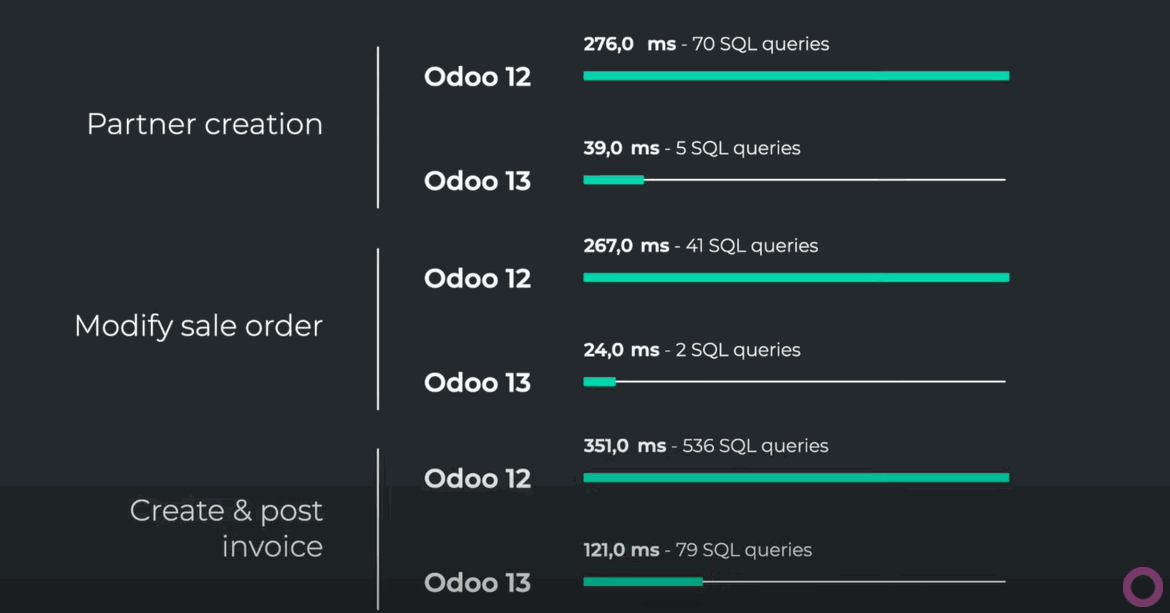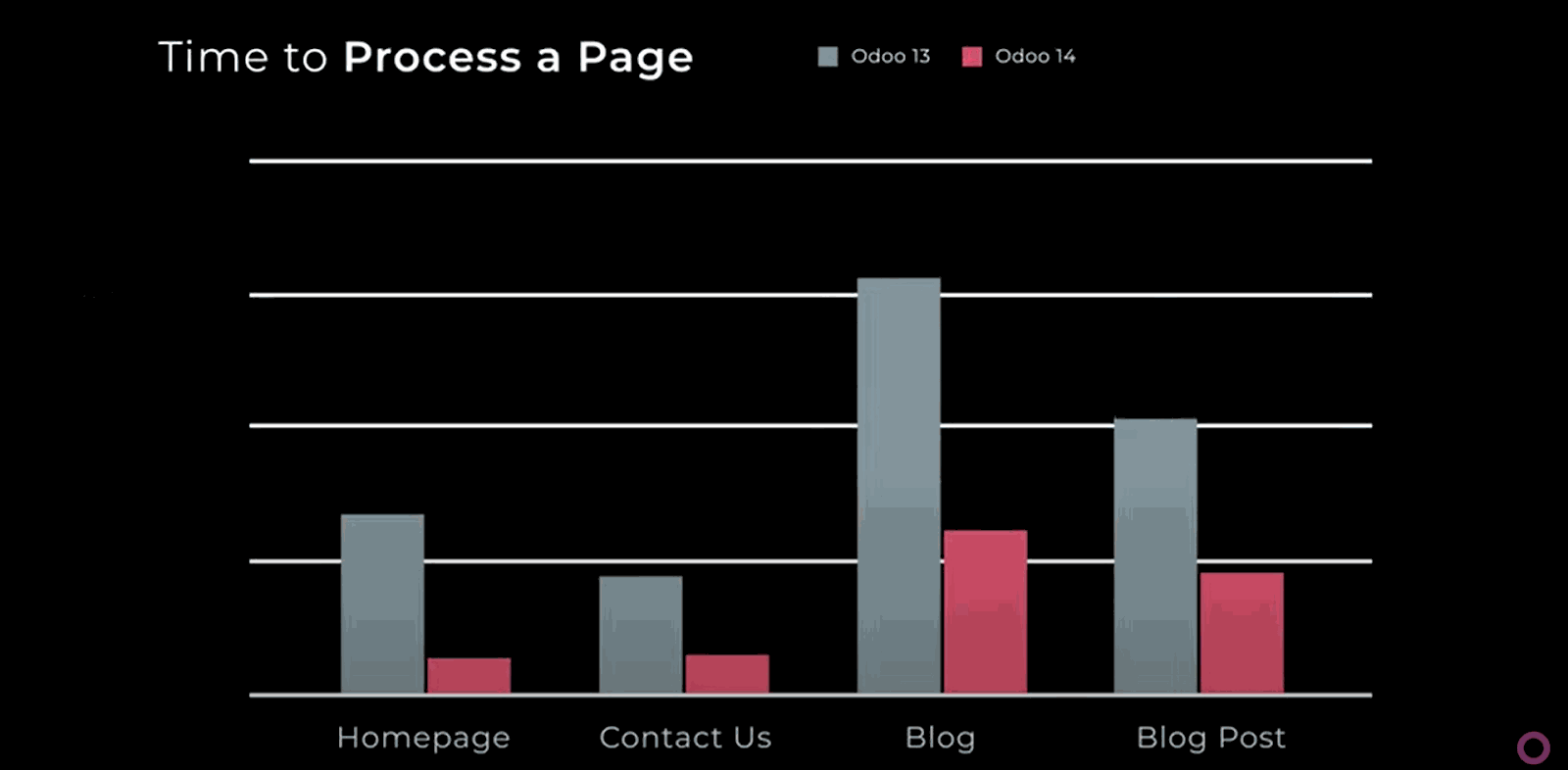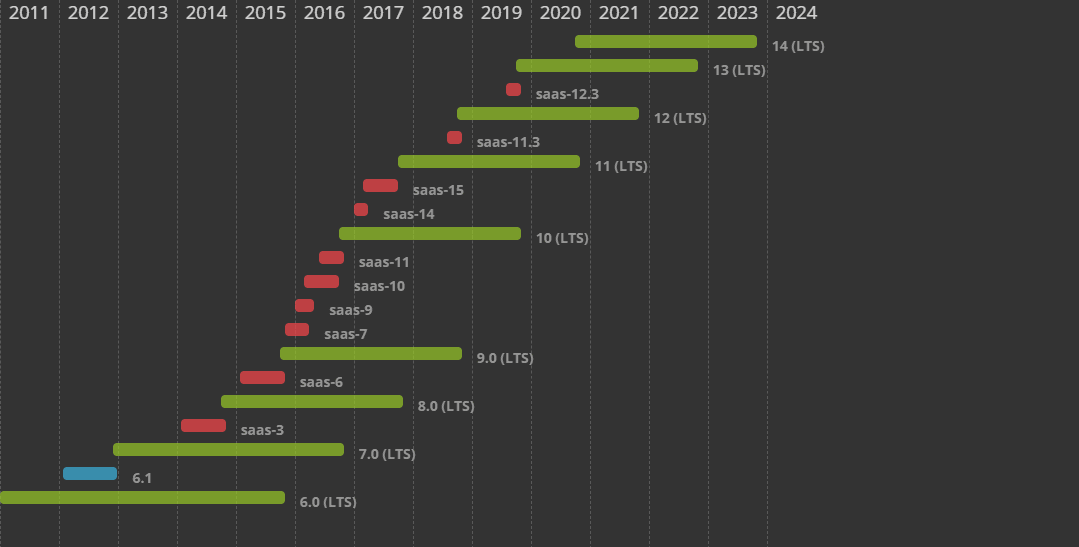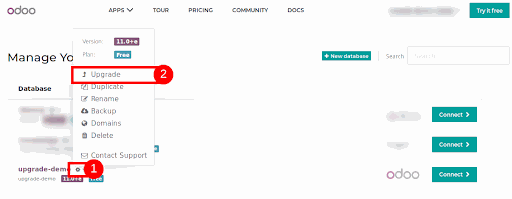Odoo has recently announced the date of Odoo Experience 2021, which will happen on October 6-7th. Due to the ongoing complexity of the pandemic, this year's edition is again going to be held online.
Apart from the inspiring presentations from Odoo as well as clients & partners about certifications, success stories & complex implementations, a highlight of the annual Odoo festival is the introduction of the new Odoo version. This year, we are going to discover Odoo version 15.
Are you already using Odoo 14 or an older version, and wondering whether you should migrate to a newer version?
Why migrating to the newest version?
There are numerous reasons why companies decide to migrate to a new version of Odoo. Let's break down the 3 main reasons:
New features, functionalities, modules & integrations
One of the biggest benefits the new version of Odoo brings every year are definitely the most recently updated and refined modules, features & integrations.
Odoo follows the latest trends and develops 2 to 4 new modules every year with a much more user-friendly interface, as well as integrations with other softwares (e.g. Outlook integration for CRM in version 14).
If you are curious about the new features in Odoo 14 in comparison to its predecessor, feel free to visit our article on this topic.
Faster, slicker, more user-friendly system
In every new version, Odoo improves its speed, both in front-end & back-end. On average, the back-end of Odoo 13 is almost 5x faster than the previous versions!

In Odoo 14, the website’s front-end is almost 3.5x faster than in version 13! This improvement is definitely appreciated by all marketers, as page speed is one of the most important criteria for good search engine optimization (SEO) of your website.

Bug fixing & functional support from Odoo
Odoo supports its clients only for the 3 latest versions. If you are using Odoo Enterprise 11 or older, your system will not be updated with any improvements, bug fixes nor functional support anymore.


Are you ready to upgrade to a new version of Odoo?
Odoo Migration Process
Once you have made a decision to migrate your older version of Odoo to a newer one, it is important to determine the right strategy for the migration by answering the following questions:
Do you have any custom or 3rd party modules in your Odoo?
What is the server hosting solution you are using?
What is the edition of your system? Enterprise or Community?
What is the original & target version of your system?
The answers to these questions will help you select the right migration strategy and plan the tasks needed for your Odoo migration. One way or the other, you should definitely assess what steps from the list below are needed for your system.
Analyze the new system, changes & rigid features
Odoo changes & improves from version to version. It adds new features & it is important to understand how these changes affect the system and the already existing functionalities. Chances are when you use an older version in which some functionalities are not available, so you customize it in your system. However, the new version may have added this feature after users’ feedback.
Comparing your custom modules & what they add/change in the system with the new Odoo features is a very important exercise to do during each migration. It helps you to get rid of the rigid modules which you won´t need in your system anymore. This approach can both save your budget (as you don't need to upgrade the customized modules), as well as make the life of your users much easier, as they won´t see duplicated information and fields, etc.
Sometimes, it might be necessary to adjust your company’s process a little bit, but in general, the less you customize your system, the better.
Upgrade your customizations and 3rd party modules
Once you have defined which custom modules need to be upgraded for the newer version of Odoo, it is time to update the code. Some modules can work almost out of the box (only with slight changes of the manifest file), the others might require more complex changes.
It always depends on the versions of Odoo, and the specific modules you are upgrading. We can use the accounting & invoicing features in Odoo 12 & Odoo 13 as a very good example. In version 13, Odoo remade the logic of invoices and journal entries and merged these 2 models/documents into one. It definitely brought tremendous improvements, such as users’ ability to check the draft journal items before posting them. However, all the modules working with invoices or journal entries needed to be completely refurbished. Sometimes, the changes are small, sometimes they are more complex, therefore it is essential to perform technical analysis to determine which group they belong to.
In case you are using a 3rd party module purchased on Odoo store, you will need to repurchase the module you already bought previously, as you need it for a newer version.
Upgrade your Odoo database
Once you make sure your customizations are upgraded, you decide not to use them anymore or you don't have any custom modules installed in your database, you should be ready to upgrade your database. The upgrade process can differ based on the hosting solution you are using.
Please note that it is possible to migrate only Odoo Enterprise databases (as it is part of the Odoo license), and you can select to migrate only to currently supported versions (the 3 most recent versions). However, it usually makes the most sense to upgrade to the latest version.
On-premise, own cloud or hosting provided by your Odoo partner
If you are handling your Odoo hosting yourself, you have 2 options to proceed with:
Use the Odoo migration script
python <(curl -s https://upgrade.odoo.com/upgrade) test -d <your db name> -t <target version>You simply use this script in the console on your server to run the migration script. In case the migration runs successfully, the migrated database will be created on your server.
In case there are any issues with the script, often related to the specifics of your database (usually caused by custom modules), you will receive an error log and you will need to submit a ticket to Odoo to fix & improve the migration script.
Upload the dump of your database to Odoo website
If the first option is too technical for you, you can always update the dump of your database to the Odoo website. Odoo will run the migration script on their end, solve any issues which occur & return to you an upgraded database for your testing.
Odoo hosting on Odoo.sh
In case you are using Odoo.sh as your hosting solution, you need to upload the dump of your database to the Odoo website. Odoo will run the migration script & return a migrated database to you, which you can restore as a staging environment. The whole process is documented in the official Odoo documentation for Odoo.sh migrations.
Odoo hosting on Odoo SAAS/Odoo Cloud
In case you are an Odoo SAAS customer, it means that:
You do not have any 3rd party modules or customizations in your system (Odoo Studio customizations & “customizations” by technical settings don´t count, as they are stored directly in the DB, they do not change the code)
You are enjoying free hosting
Because you are not adding any complexity to your system by external modules, the upgrade process is pretty straightforward. You can request it directly in your customer portal on odoo.com.

Odoo will prepare a testing environment for you, where you can experience the new version of the system, test its functionalities with your configuration & data and confirm whether you want to switch. The whole process is documented on Odoo website.
How long does it take to migrate to a new Odoo version?
What is the current version of your Odoo?
What is the desired version you aim to migrate to?
When do you request the migration?
How many & how complex customizations you have in your system?
With larger implementations, the migration process is usually a completely standalone project and it can take 3-4 months to complete.
When should we migrate to a new version?
Migration to a newer version of Odoo is always a compromise between benefits and costs. In general, we recommend upgrading your Odoo at least once in 3 years, to make sure that you are always using a supported version (as mentioned above, Odoo supports only the latest 3 versions of the system).
However, it might make sense to upgrade your Odoo more often, especially in the following cases:
You do not have any custom modules or 3rd party applications (or you have a very limited amount of them with low complexity)
There is a new functionality that will significantly simplify your process or automate tasks that are currently being performed manually
You are experiencing issues with your system’s performance
Migrating to a new version while using Odoo Community
Only Odoo Enterprise users can benefit from the free system upgrade. If you are using Odoo Community, you don't receive any support or script to upgrade your database.
The process with the first 2 steps (analysis of the changes, upgrade of the custom modules) of the migration is the same, although the upgrade of your database can be handled in multiple ways.
Upgrade to Odoo Enterprise
The simplest & most hassle-free option is to upgrade your Odoo Community to Odoo Enterprise, before you start your migration to the latest version. As free upgrade is part of the Odoo license, it can save you a lot of budget & time, especially if you have a small amount of internal users in the system. A subscription for several years can consume a smaller amount of budget than preparing your own migration script for Odoo Community.
Do another clean implementation
Another option, again suitable mostly for smaller systems (smaller in terms of scope - a small number of base apps or base Odoo) and companies which are using very old versions of the system, is a standalone implementation of the latest version.
A completely new analysis of the new features will often reveal that you do not need to migrate a big amount of custom modules, and you can handle more processes with the base Odoo features.
What is important in this approach is how to define the correct data migration strategy.
Prepare your own migration script
For larger, more complex & customized systems, which you don't desire to upgrade into version Enterprise for some reasons (usually systems with large amounts of internal users), the most suitable solution is to prepare your own database migration script, which will transfer & prepare the data into the right structure for the new version. We recommend approaching an experienced Odoo partner, who has at least 3-4 years of experience with Odoo & a proven history of successful migrations.
Need help with migration?
Migrating Odoo to a new version can be a time-consuming process, and very prone to mistakes due to a lack of experience with Odoo upgrades. Our consultants are here to discuss your case, perform an analysis, recommend the right migration strategy & help you to start reaping the benefits of the latest version. Do not hesitate to drop us a message, if you are considering migrating to a newer version of Odoo!